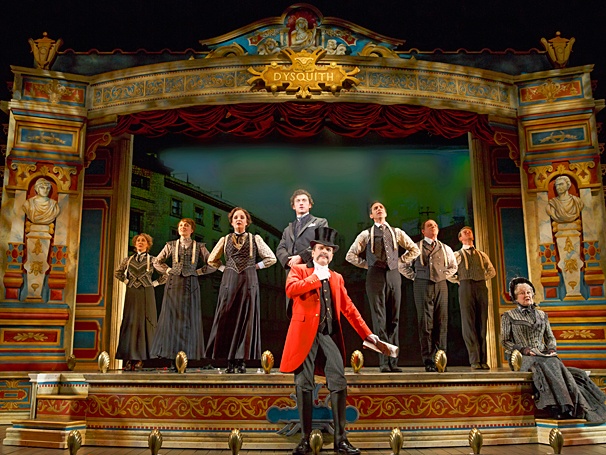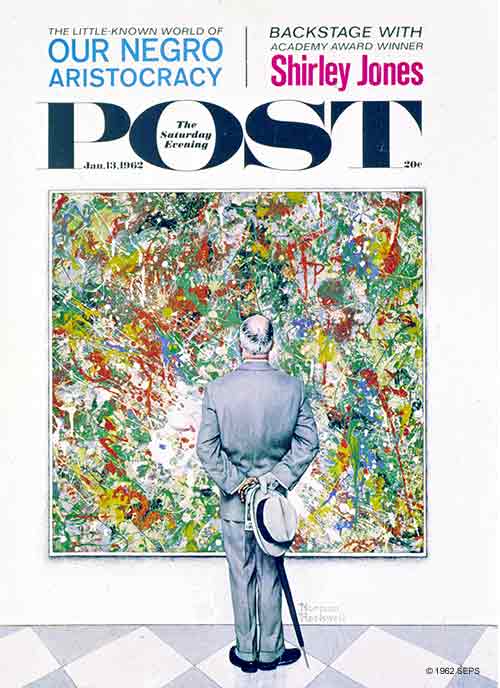“The most valuable thing I have learnt from life is to regret nothing. Life is short, nature is hostile, and man is ridiculous; but oddly enough most misfortunes have their compensations, and with a certain humour and a good deal of horse-sense one can make a fairly good job of what is after all a matter of very small consequence.”
W. Somerset Maugham, The Narrow Corner
Archives for 2013
TT: Lookback
From 2003:
Sheet music, no matter how handsome the paper and typography, is not an art object in and of itself. Rather, it’s a set of instructions by which humans of flesh and blood may call into evanescent existence the non-corporeal “art object” that is a “piece” of music. Could it be that my early experience as a musician now conditions the way I think about all art? I’m sure, for example, that it made me more open to abstract art and plotless ballet (for what art is so abstract as music?). Perhaps it has also made it easier for me to accept the idea of the “bodiless” book….
Read the whole thing here.
TT: Almanac
“The contrast between a man’s professions and his actions is one of the most diverting spectacles that life offers.”
W. Somerset Maugham, The Narrow Corner
TT: Just because
The Will Mastin Trio with Sammy Davis Jr. perform on The Colgate Summer Comedy Hour in 1954:
(This is the latest in a series of arts-related videos that appear in this space each Monday and Wednesday.)
TT: Almanac
“Music is queer. Its power seems unrelated to the other affections of man, so that a person who is elsewise perfectly commonplace may have for it an extreme and delicate sensitiveness.”
W. Somerset Maugham, The Narrow Corner
WHAT BILL GATES IS BLIND TO
“Mr. Gates thinks it immoral for rich people to give money to museums instead of medical projects, presumably those that have received the official Bill Gates Seal of Moral Approval. To be sure, he deserves full credit for putting his own money where his mouth is: The Bill & Melinda Gates Foundation gives away some $4 billion a year, much of which is used to support health-related initiatives in developing countries, including a world-wide initiative to stamp out polio. Good for him–but when it comes to art, he’s got it all wrong, and then some…”
TT: As good as Guinness
In today’s Wall Street Journal I review two worthy Broadway openings, A Gentleman’s Guide to Love & Murder and Lincoln Center Theater’s Macbeth. Here’s an excerpt.
* * *
At last, a good new Broadway musical. Really good, in fact. Not only is “A Gentleman’s Guide to Love & Murder” wickedly witty, wonderfully well staged and as pleasing to hear as it is to see, but it brings Jefferson Mays, the quick-change artist of “I Am My Own Wife,” back to the New York stage in a major role–nine of them, in fact–for the first time since he starred opposite Claire Danes in the 2007 Roundabout revival of “Pygmalion.” If you’re tired of apologizing to out-of-town visitors for the shaky state of 21st-century American musical comedy, send them to “A Gentleman’s Guide” and rest assured that they’ll go home happy.
 The program is coy about it, presumably for legal reasons, but “A Gentleman’s Guide” is based on the same obscure 1907 novel by Roy Horniman that Robert Hamer used as the source material for “Kind Hearts and Coronets,” the 1949 movie in which Alec Guinness played the eight members of an aristocratic family who stand between Dennis Price and a dukedom, all of whom end up dead. To match wits with a universally acclaimed classic of film comedy is risky business indeed, but Robert L. Freedman and Steven Lutvak, the co-creators of “A Gentleman’s Guide,” have wisely chosen to go their own way, retaining the basic plot mechanism of “Kind Hearts and Coronets” (in which the victims, men and women alike, are all played by Guinness) but radically transforming the characterizations and inserting a firecracker of a surprise ending. Though I’ve stealthily hinted at its nature, I guarantee that you won’t see it coming until it arrives–and it improves on the film!
The program is coy about it, presumably for legal reasons, but “A Gentleman’s Guide” is based on the same obscure 1907 novel by Roy Horniman that Robert Hamer used as the source material for “Kind Hearts and Coronets,” the 1949 movie in which Alec Guinness played the eight members of an aristocratic family who stand between Dennis Price and a dukedom, all of whom end up dead. To match wits with a universally acclaimed classic of film comedy is risky business indeed, but Robert L. Freedman and Steven Lutvak, the co-creators of “A Gentleman’s Guide,” have wisely chosen to go their own way, retaining the basic plot mechanism of “Kind Hearts and Coronets” (in which the victims, men and women alike, are all played by Guinness) but radically transforming the characterizations and inserting a firecracker of a surprise ending. Though I’ve stealthily hinted at its nature, I guarantee that you won’t see it coming until it arrives–and it improves on the film!
I wouldn’t make so bold as to say that Mr. Mays improves on Guinness, but he’s as good as his illustrious predecessor, than which there can be no higher praise. He shifts from character to character as effortlessly as he did in “I Am My Own Wife,” and each successive part stands out sharply from its predecessors….
More Shakespeare on Broadway? Uh-huh, but this time it’s courtesy of Lincoln Center Theater, which invited Jack O’Brien, lately of “The Nance,” to stage a “Macbeth” in which Ethan Hawke, lately of “Before Midnight,” takes center stage. Mr. O’Brien has come up with an austere-looking yet populist “Macbeth,” a spook show tightly packed with grandiose theatrical gestures–blood and thunder, Nuremberg Rally-style lighting, gender-bending Weird Sisters–and performed by an exceptional team of players led by Anne-Marie Duff. Ms. Duff’s Lady Macbeth is at once sexy and scary, eyeing her hapless husband as though she were a snake and he an unusually toothsome-looking mouse.
Few, I suspect, will be surprised to hear that Mr. Hawke is a callow, monochrome Macbeth–he sounds even younger than his 43 years–who never manages to make much of Shakespeare’s verse. But the rest of the cast, especially Ms. Duff, Richard Easton, Brian d’Arcy James, Byron Jennings and Daniel Sunjata, is so strong that his shortcomings count for far less than you’d expect….
* * *
Read the whole thing here.
Jefferson Mays talks about A Gentleman’s Guide to Love & Murder:
TT: Bill Gates, idiot
In today’s Wall Street Journal “Sightings” column I take disapproving note of a foolish statement by Bill Gates about philanthropy. Here’s an excerpt.
* * *
The big news in the art world last week was the record-busting auction at Christie’s in which $142.4 million–a worldwide auction record for any work of art–was spent on “Three Studies of Lucian Freud,” a 1969 triptych by Francis Bacon. You don’t have to be a Marxist or an advocate of sumptuary laws to be made queasy by such numbers, much less to wonder whether something has gone wrong with the values of the world of art.
That said, it’s one thing to bristle at big-bucks art auctions and another altogether to go along with Bill Gates, who said in a recent interview with the Financial Times that…well, I’ll cite the story verbatim, since his remarks won’t win any prizes for clarity:
 “Quoting from an argument advanced by moral philosopher Peter Singer, for instance, [Gates] questions why anyone would donate money to build a new wing for a museum rather than spend it on preventing illnesses that can lead to blindness. ‘The moral equivalent is, we’re going to take one per cent of the people who visit this [museum] and blind them,’ he says. ‘Are they willing, because it has the new wing, to take that risk? Hmm, maybe this blinding thing is slightly barbaric.'”…
“Quoting from an argument advanced by moral philosopher Peter Singer, for instance, [Gates] questions why anyone would donate money to build a new wing for a museum rather than spend it on preventing illnesses that can lead to blindness. ‘The moral equivalent is, we’re going to take one per cent of the people who visit this [museum] and blind them,’ he says. ‘Are they willing, because it has the new wing, to take that risk? Hmm, maybe this blinding thing is slightly barbaric.'”…
Mr. Gates thinks it immoral for rich people to give money to museums instead of medical projects, presumably those that have received the official Bill Gates Seal of Moral Approval. To be sure, he deserves full credit for putting his own money where his mouth is: The Bill & Melinda Gates Foundation gives away some $4 billion a year, much of which is used to support health-related initiatives in developing countries, including a world-wide initiative to stamp out polio.
Good for him–but when it comes to art, he’s got it all wrong, and then some….
* * *
Read the whole thing here.
